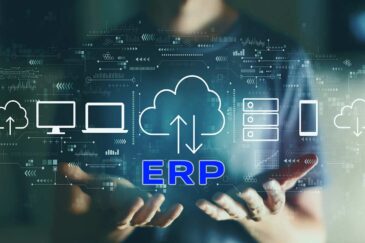What are the Different Types of NetSuite ERP Modules and Their Use Cases

- August 20, 2024
- Mohammed Nadeem Uddin
- 0
Financial Management
General Ledger: Manages core financial records and provides financial statements and real-time financial data.
Accounts Payable (AP): Manages vendor management, bill payments, and expense tracking.
Accounts Receivable (AR): Manages customer invoices, payments, and collections.
Fixed Assets Management: Tracks and manages fixed asset lifecycle, including depreciation.
Tax Management: Automates tax calculations and compliance for different regions and countries.
Cash Management: Manages cash flow, bank reconciliation, and forecasting.
Budgeting and Forecasting: Creates and manages budgets and financial forecasts.
Use Cases
Order Management
Sales Order Management: Automates the order-to-cash process, from order entry to fulfillment.
Pricing and Promotions: Manages pricing strategies, discounts, and promotions across different channels.
Billing Management: Automates billing processes, including recurring billing and subscription management.
Use Cases
Supply Chain Management (SCM)
Inventory Management: Provides real-time visibility and control over inventory levels, movements, and storage.
Warehouse Management: Optimizes warehouse operations, including picking, packing, and shipping.
Procurement: Manages purchase orders, vendor relationships, and procurement processes.
Demand Planning: Forecasts demand and align inventory levels with projected sales.
Manufacturing: Supports production planning, scheduling, and control for manufacturing processes.
Use Cases
Human Resources Management (HRM)
Payroll Management: Automates payroll processes, tax calculations, and compliance.
Employee Records: Manages employee information, including personal data, job roles, and performance reviews.
Time and Attendance: Tracks employee hours, manages time-off requests, and integrates with payroll.
Talent Management: Supports recruitment, onboarding, and employee development.
Use Cases
Customer Relationship Management (CRM)
Sales Force Automation: Automates sales processes, lead management, and pipeline tracking.
Customer Service Management: Provides tools for managing customer support cases, issues, and resolutions.
Marketing Automation: Manages marketing campaigns, email marketing, and customer segmentation.
Use Cases
Professional Services Automation (PSA)
Project Management: Provides tools for planning, executing, and tracking projects, including time and expense tracking.
Resource Management: Manages the allocation of resources, skills matching, and utilization tracking.
Billing and Revenue Recognition: Automates project billing and revenue recognition as per project milestones.
Use Cases
E-commerce
SuiteCommerce: Integrates with NetSuite ERP to provide an omnichannel shopping experience, including online storefront management, product catalogs, and order processing.
Use Cases
Governance, Risk, and Compliance (GRC)
Audit and Compliance: Provides tools for managing and automating compliance with regulations and internal policies.
Risk Management: Identifies and mitigates risks across the organization.
Use Cases
Business Intelligence and Reporting
SuiteAnalytics: Offers real-time dashboards, reports, and key performance indicators (KPIs) to support data-driven decision-making.
Use Cases
Global Business Management (GBM)
Multi-Currency and Multi-Language: Supports global operations with multi-currency, multi-language, and multi-subsidiary capabilities.
Localization: Provides country-specific configurations for compliance with local regulations, such as tax and accounting standards.
Use Cases
Why You Need NetSuite Consultation Services
How to Choose a NetSuite Solution Provider

Services
Products
Company
Copyright © 2025 Rite Software Solutions & Services LLC. All rights reserved.



